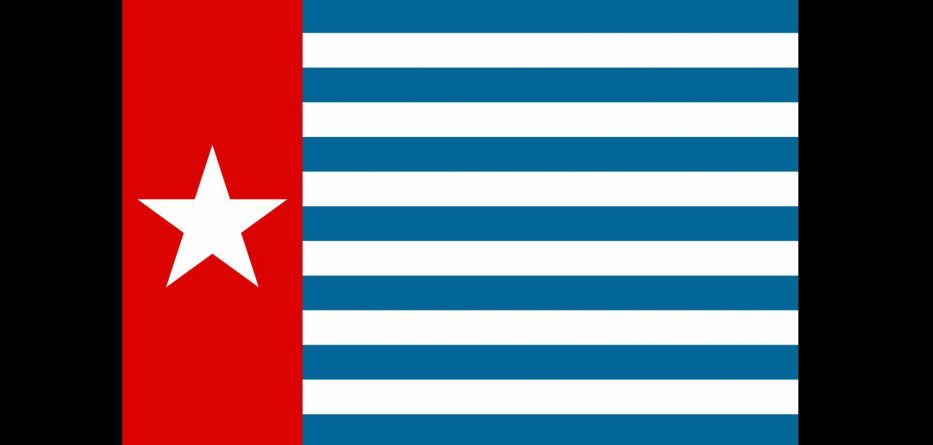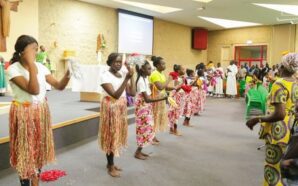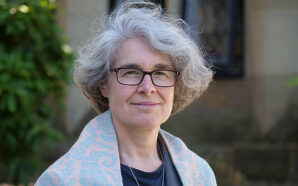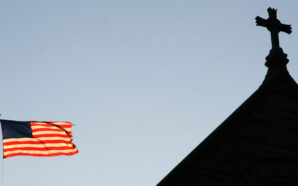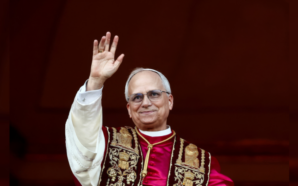First published in Justice Trends, the quarterly newsletter of the Australian Catholic Social Justice Council, No. 168, March 2018.
After more than 50 years of repression, the indigenous people of West Papua hold on to the belief that one day they can reclaim their country.
While thousands of Papuans have been beaten, jailed, raped and murdered for standing up for their rights, Papuans young and old continue to risk danger by publicly campaigning for their freedom from Indonesian rule, which began as a result of a fraudulent and unjust process enforced by the Indonesian Government and supported by other countries, in particular the United States.
In the latest Catholic Social Justice Series paper, Into the Deep: Seeking justice for the people of West Papua, author Peter Arndt recounts his personal experience of meeting West Papuans in their homes and villages, and describes the importance of faith and solidarity in their struggle for justice.
Peter Arndt has been executive officer of the Catholic Justice and Peace Commission of the Archdiocese of Brisbane since 2001. Over the last three years, he has travelled several times to West Papua and the Pacific as part of his commitment to deepening solidarity with marginalised and oppressed peoples.
In his introduction to Into the Deep, ACSJC Chairman, Bishop Vincent Long Van Nguyen, commends Arndt’s deeply moving account of the sufferings of the indigenous people of West Papua.
“He shows how he has come to understand their indomitable desire for self-determination and to recognise how the Gospel calls him to walk beside his friends on their journey,” Bishop Long writes.
“That deep reflection on Gospel values and Church teaching is what makes this publication so inspiring. Peter places his friends’ experience in the context of the Scriptures and looks deeply into the Church’s teachings on justice and asks what he must do. He discerns the answer with clarity and courage.”
In the paper, Arndt notes that the vast majority of Papuans are Christians and their faith sustains them in their resistance to Indonesian occupation, with many public acts of resistance taking the form of prayer gatherings. 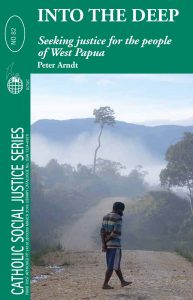
“It’s worth noting that, as much as their faith strengthens Papuans in their struggle, Indonesian soldiers and police often respond by denigrating and mocking their Christianity,” he writes.
The paper describes numerous examples over many years of the violence and cruelty perpetrated by the Indonesian police and military and the survivors’ stories of pain, humiliation and fear. Despite assurances that incidents of violence and killings would be investigated, “no Indonesian soldier or police officer has been held accountable for the dreadful deeds committed”.
“The survivors have not only been deprived of justice for the violence inflicted on them, but in the intervening years they have continued to suffer. “Those who have continued to speak out … are deprived of employment opportunities and pensions.
“Survivors are also subject to harassment and intimidation by various arms of the Indonesian security apparatus.
“This constant surveillance and repression induce a constant state of fear within the community. It’s a nightmare that never ends, an open jail you can never leave.”
The author relates the story of being stopped on the road by soldiers who collected an illegal toll from his group.
“The military and the police not only bring violence and the threat of violence to the Highlands and every other part of West Papua. They also exploit the land and its people for monetary gain.
“Our Papuan colleagues told us how the various arms of the security forces control the trade of every type of commodity in the Highlands, from rice to petrol. We were told that the various military and police units divide different types of commodities in particular districts between themselves and operate what is effectively a protection racket.
“They also operate their own businesses, including brothels, trade in pornography and alcohol and illegally sell wildlife, including West Papua’s iconic birds of paradise.”
In the aftermath of the killing of four young men following a pre-Christmas vigil, security officers approached family members offering large sums of money to settle the case and keep them quiet. “It was effectively blood money.”
Returning to that area some time later, Arndt found that the case was still being investigated by the National Human Rights Commission, Komnas Ham, and no-one had been held to account for killing the four boys. “That remains the case to this day, despite repeated assurances by the Indonesian Government that resolving the case is a high priority.”
The families have refused to take the money and when asked what they want if there is to be justice for their boys, one of the fathers spoke for them all: “The only justice we want is freedom!”
“It is clear to me that when they spoke of freedom, my Papuan sisters and brothers not only wanted an end to the violence that constantly surrounded them. They clearly wanted an end to Indonesian occupation of their lands and an opportunity to live as Papuans with their own languages, culture and religion rather than as Indonesians.
“Many Australians, Americans and Europeans seeking to support the people of West Papua baulk at any form of support for a political objective. I have heard people of good will who say that they cannot be involved in political action and so restrict themselves to human rights advocacy. Some advise Papuans that self-determination is an impossible dream and that lesser goals should be sought.
“I am immensely troubled by any approach that actively discourages Papuans from seeking freedom in the way they want it.”
The paper also describes the way Papuans are marginalised by the waves of Indonesians who have migrated from places like Java, Flores and Sumatra. In some cities, the indigenous Papuan proportion of the population is now a little over 36 per cent.
“In the more remote regions, Papuans still are in the majority, but the trend is clear: as more Indonesians arrive, Papuans are destined to become a smaller and smaller minority in their own land.”
At the same time, Papuans are discriminated against in the provision of education, health services and employment.
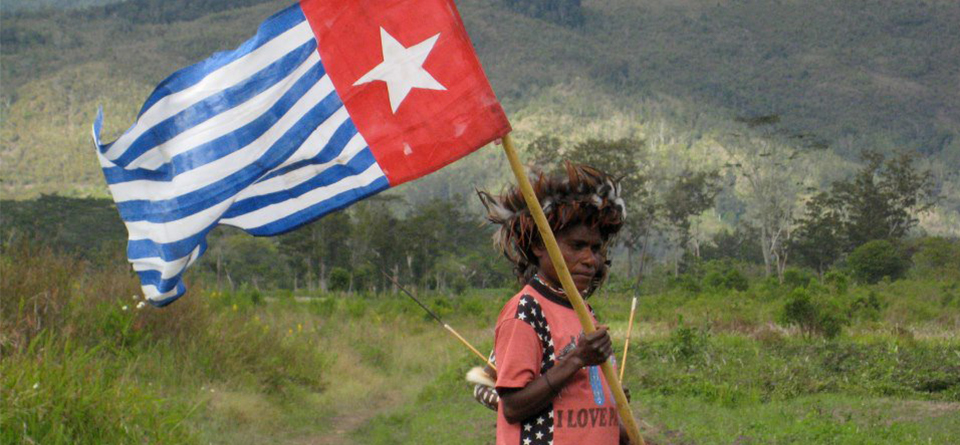
The West Papuan flag. Image: https://www.freewestpapua.org/
“We were told that nepotism by Indonesian employers and public service bosses meant that those Papuans who did have good qualifications often missed out on getting jobs. Papuan business operators complained that the military and the police would often squeeze them out of lucrative opportunities in order to make money for themselves.
“It is rare to see Papuan-owned businesses in the big cities like Jayapura. And those that support affirmative action are quickly stigmatised as ‘separatists’ by the Indonesian state, a label that can mean you wind up dead, dumped by the side of the road, one more ‘mysterious killing’.”
The authorities discourage the wearing of traditional dress and the performance of traditional cultural activities and the use of local languages is declining, while mosques are being erected in large numbers to cater for the rapidly growing population of mostly Muslim Indonesian migrants.
“In several places, we heard about the rising incidence of violent conflicts between Papuans and Indonesians. The police invariably favour the Indonesian participants in these disputes and brawls.
“There are claims that some Indonesian authorities are actively supporting and encouraging Indonesian migrants to attack Papuans and their property.”
Despite the danger of publicly campaigning for their self-determination, support is growing for the organisation formed in 2014 to advance the cause of West Papuan freedom internationally, the United Liberation Movement for West Papua (ULMWP).
The leaders of seven Pacific nations spoke in the UN General Assembly in 2016 about human rights abuses in West Papua and supported a statement calling for a report on human rights abuses at the UN Human Rights Council in Geneva in March 2017.
ULMWP leaders are now seeking support for their cause in other parts of the world and are aiming to get support for a self-determination referendum, beginning in September 2017 when ULMWP leaders presented a UN official with a petition from well over one million Papuans.
Papuans from every part of society, from customary leaders to the student movement, see the need to unite in support of their leaders in the ULMWP to capitalise on the gains that have been made since 2014.
Arndt emphasises the importance of solidarity with the people of West Papua, not with a view telling them what to do, “but rather with the desire to walk with them in their struggle to shape their own future as the First Peoples of their land”.
“My solidarity acknowledges that they are the true experts on their situation and it respects their leadership of the work to overcome their oppression.
“I am also being accompanied by my Papuan sisters and brothers on the journey to reconstruct my own understanding of the world and my life and my participation in cultivating a social order founded on love. Into the deep we are called, into deep solidarity with Christ crucified and risen, into deep solidarity with each other in our suffering, into the deep waters of Merdeka – Freedom!”
For more information:
Australian Catholic Social Justice Council, email admin@acsjc.org.au, phone (02) 8306 3499.
Peter Arndt, Catholic Justice and Peace Commission, Archdiocese of Brisbane, phone 0409 265 476
Into the Deep: Seeking justice for the people of West Papua (Catholic Social Justice Series No. 82) is available from the Australian Catholic Social Justice Council for $7.50. Phone (02) 8306 3499, email admin@acsjc.org.au.
With thanks to ACSJC.




